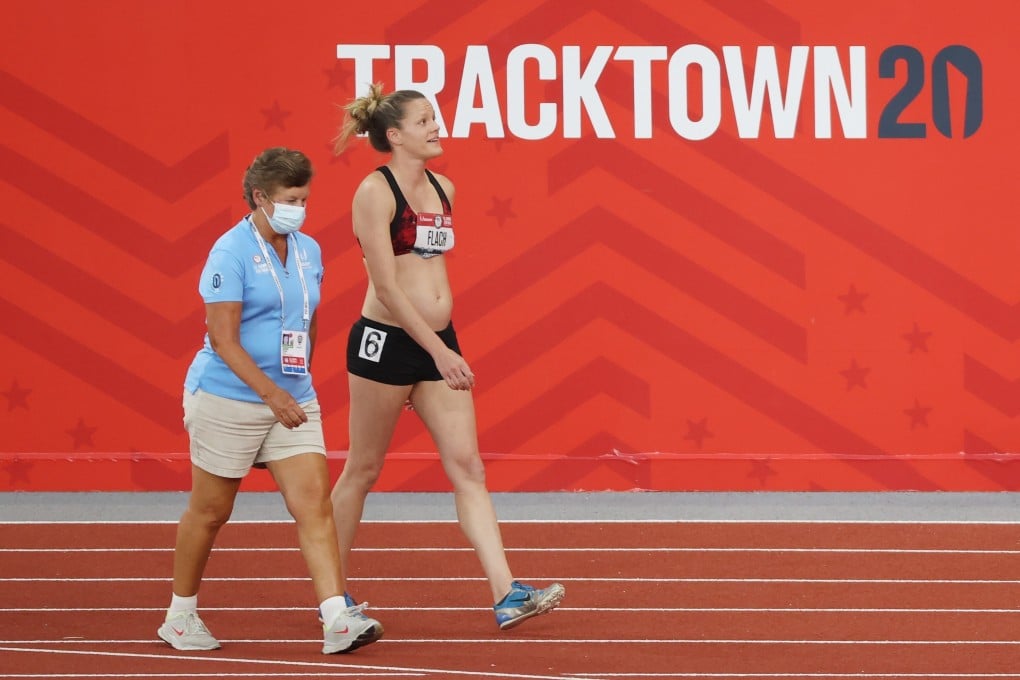Tokyo Olympics: pregnant Lindsay Flach joined US track and field trials to ‘prove what women are capable of’
- Flach drew flak for competing, which doctors say is due to the fear of risks from sports – though exercising while pregnant is beneficial for most women, they add
- Athletes such as Malaysia’s Nur Suryani Mohamed Taibi and the Netherlands’ Anky van Grunsven have taken part in previous Olympics while sporting a baby bump

Our Tokyo Trail series looks at key issues surrounding the 2020 Olympics, which are scheduled for late July.
Flach – who had days earlier revealed on Instagram that she was expecting – had the step patterns for the 100-metre hurdles on her mind, as well as the back arching needed for the high jump. The heptathlon includes five other events over two days: the shot put, a 200-metre run, broad jump, javelin throw and an 800-metre run.
With the trials in Eugene, Oregon, taking place amid a torrid heatwave, Flach ended up leaving the track after 100 metres of the 800-metre race on the second day, feeling that it was the best move to keep her and her baby healthy as the temperature hit 43 degrees Celsius.
“It was hard mentally because I knew I wasn’t going to be able to compete at the level I was capable of 18 weeks ago, but I just wanted to prove what women are capable of,” Flach told Yahoo Sports when asked why she had decided to go ahead with the trials after revealing her pregnancy. “To end one chapter and begin another on my terms was amazing.”